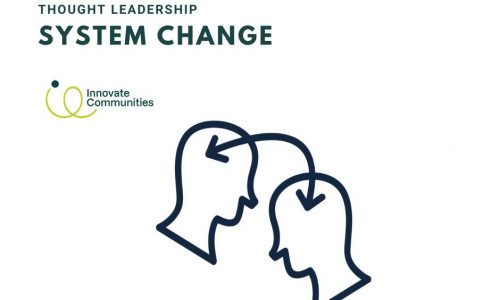Part 3/3. What do we do to get started nationally…
“You can’t solve our biggest challenges without changing the system. But you can’t change the system without changing minds. And, along the way, offering an inspiring vision of what’s possible if you do”.[1]
Most public sector challenges across economic, social and environmental pillars are not stand alone but are interconnected, intertwined and are wicked [2]in nature; Increasing automation of jobs creates new challenges for both the education and welfare systems. Ensuring a high-quality, active life for an ageing population puts pressure on the labour market, but also requires new ways of providing medical and social care. Climate change, obesity, radicalisation of social behaviours, income inequality and poverty are all challenges where causes and effects are blurred. As policy challenges have changed toward systemic, interdependent challenges, their understanding and analysis needs to change (Cook and Tõnurist, 2020)[3].
The OECD (2017) is calling for more holistic policy approaches to public sector challenges that look at the whole system rather than the separate parts; that value outcomes over processes; and that embrace a variety of voices and inputs instead of self-interest, systems approaches have the potential to fundamentally transform the policy-making process, allowing policy makers to focus on areas where change can have the greatest impact.
While organisations such as Nesta (and many others), have raised the topic of using systems approaches in the public sector, it is an emerging field that could be further cultivated in the Irish context. Empirical research has been completed on the strategies policy makers use to deal with uncertainty in practice. The research indicated that governments insource systems capabilities and thus tend to rely heavily on outside consultants and designers to lead and instigate systems level changes. The public sector must build the capacity to become internally adaptive to the continuously changing circumstances of a Volatile, Uncertain, Complex and Ambiguous world (Cook and Tõnurist, 2020)[4].
Adopting such an approach requires significant adjustments on the part of governments. It means moving away from traditional linear procedures, strategic planning and the notion of reform as an isolated intervention (OECD, 2017). There is a myriad of approaches to this, however, one evaluated avenue suggested for policy makers is to focus on building capacity of leaders to forecast future scenarios and apply system leadership, a tool for our time (World Economic Forum, 2019). Systems Leadership is a set of skills and capacities that any individual or organisation can use to catalyse, enable and support the process of systems-level change. It is comprised of three interconnected elements (Harvard, 2019)[5]:-
Because system thinking focuses on outcomes, systems approaches require multiple actors within and across levels of government to work together. To effect systems change actors must collectively develop a shared vision for a desired future outcome, define the principles according to how that future system will operate, and start to implement a set of interventions that will transform the existing system into the future system (OECD, 2017).[6]
While community-driven system change may be locally initiated and directed, our experience underscores that state/government involvement is critical to its success. This is not simple. We must embark on altering our administrative architecture before we can start to shift our business-as-usual mindsets and the conditions that are creating our entrenched and contemporary challenges in society. We need to be open and willing to come together to start a journey to reimagine and reframe how we improve the lives of citizens, and our society. Are you willing to change?
“The deepest lever for systemic change is our mindset,” Sally Uren told me. “I see too many people wanting to drive systemic change but who are not willing to change their own view of the world, and who are not willing to change what they’re doing.”[7]
At Innovate Communities we are raising awareness of the importance of system change and the need to build capacity in system thinking as a tool, to facilitate long term positive change in our communities. We believe building capacity in system thinking is a catalyst for sustainable development. Our new website will be launched in the coming month, detailing this further, watch this space!
Marianne Cassidy Ciara Morgan Philip McGrath Colin Flaherty Jade Eiffe O’Toole barry vaughan Dr Orlaigh Quinn Amal CHEVREAU-BAHIJLuiz de Mello Anna Birney Misha Kaur Jane Martin Alfonso L. Stefan Chichevaliev Stefan Schäfers Eilidh McLaughlin Mark Elliott Our Public Service Toby Farren Chris Armstrong
[1] https://www.greenbiz.com/article/what-does-system-change-mean-anyway
[2] A wicked problem is a social or cultural problem that’s difficult or impossible to solve because of its complex and interconnected nature.
[3] https://www.oecd.org/media/oecdorg/satellitesites/opsi/contents/images/h2020_systemsthinking-fin.pdf
[4] https://www.oecd.org/media/oecdorg/satellitesites/opsi/contents/images/h2020_systemsthinking-fin.pdf
[5] https://www.hks.harvard.edu/sites/default/files/centers/mrcbg/files/Systems%20Leadership.pdf
[6] OECD (2017), Systems Approaches to Public Sector Challenges: Working with Change, OECD Publishing, Paris.
[7] https://www.greenbiz.com/article/what-does-system-change-mean-anyway



Find Us
© 2024 Brand and Website by Out of Place Studio